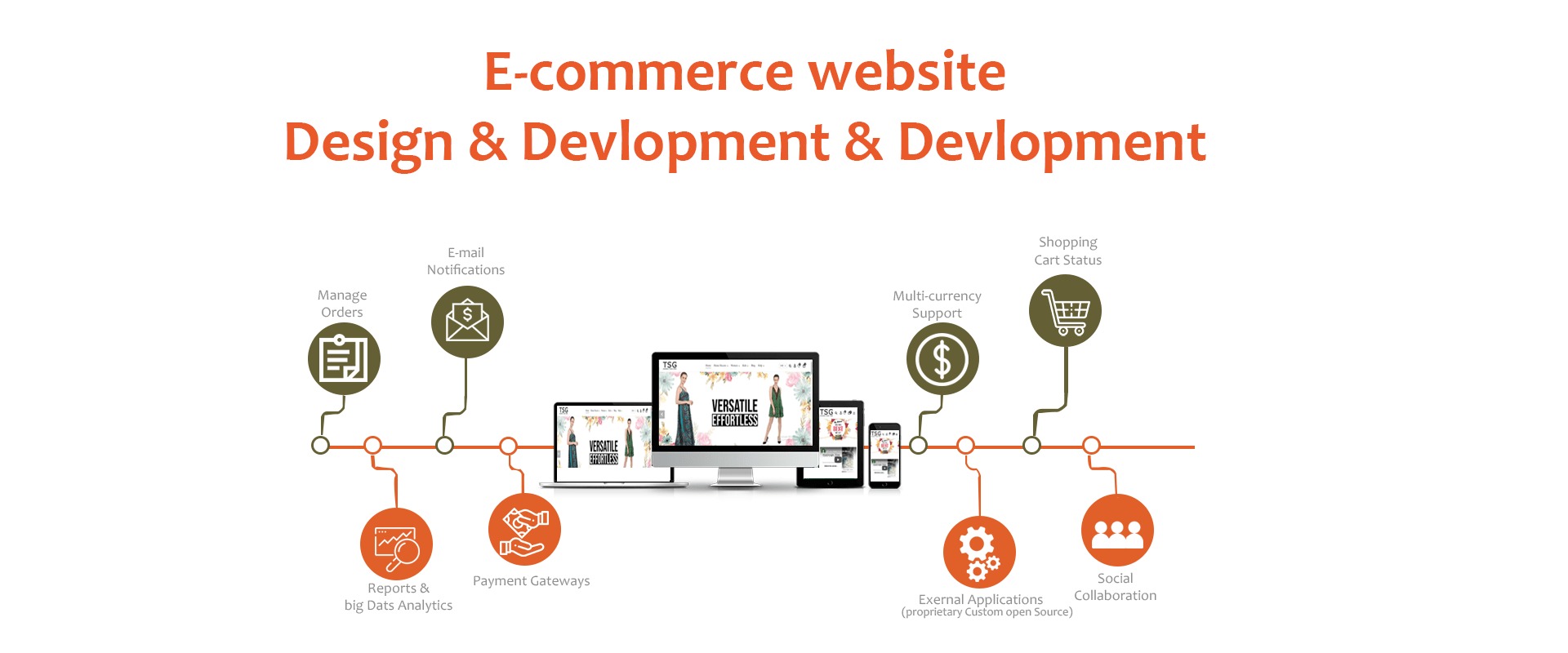In today’s digital age, having a strong online presence is essential for businesses to thrive. One of the key components of a successful online strategy is the development of an ecommerce website. This article delves into the intricacies of ecommerce website development, highlighting its importance, benefits, process, and trends, with a focus on the services provided by web design companies in Dubai.
I. Introduction
Ecommerce website development plays a crucial role in empowering businesses to reach a wider audience and drive sales through the online platform. With the increasing popularity of online shopping, businesses need to invest in robust ecommerce solutions to stay competitive in the market.
II. Understanding Ecommerce Website Development
Ecommerce website development involves the creation of online platforms where businesses can showcase and sell their products or services. It encompasses various aspects such as website design, development, and optimization to ensure a seamless user experience.
III. Benefits of Ecommerce Website Development
Investing in ecommerce website development offers numerous benefits for businesses, including enhanced online presence, increased sales and revenue, improved customer experience, and access to a global market.
IV. Ecommerce Website Development Process
The process of ecommerce website development typically involves planning and research, design and development, testing and quality assurance, and launch with ongoing support to ensure the website’s optimal performance.
V. Choosing the Right Web Design Company
Selecting the right web design company is crucial for the success of ecommerce website development. Factors to consider include experience, expertise, portfolio, and client testimonials. In Dubai, several reputable web design companies offer top-notch ecommerce solutions tailored to meet the specific needs of businesses.
VI. Trends in Ecommerce Website Development
The landscape of ecommerce website development is constantly evolving, with emerging trends such as mobile responsiveness, integration of AI and machine learning, personalization and customization, and enhanced security measures shaping the future of online commerce.
VII. Case Studies
Examining real-world examples of successful ecommerce websites provides valuable insights into effective strategies and features that contribute to their success. Let’s explore a couple of case studies:
- Amazon: As one of the largest ecommerce platforms globally, Amazon has set the standard for online shopping experiences. With a vast product catalog, personalized recommendations, and seamless checkout process, Amazon prioritizes user convenience and satisfaction. Their innovative use of data analytics and AI-driven algorithms ensures that customers find the products they need quickly and easily. Amazon’s relentless focus on customer service and continuous innovation has propelled it to the forefront of the ecommerce industry.
- Shopify: Shopify is a leading ecommerce platform that empowers businesses of all sizes to build and grow their online stores. With its user-friendly interface, customizable templates, and robust features, Shopify makes it easy for merchants to create professional-looking websites and manage their online businesses efficiently. Shopify’s extensive app marketplace allows merchants to add functionality and integrate with third-party services seamlessly. Its dedication to providing tools and resources for ecommerce success has made Shopify a preferred choice for entrepreneurs and established brands alike.
VIII. Tips for Successful Ecommerce Website Development
Ensuring the success of your ecommerce website development requires careful planning, strategic implementation, and ongoing optimization. Here are some essential tips to guide you through the process:
- Focus on User Experience: Prioritize the user experience by designing intuitive navigation, clear product categories, and seamless checkout processes. Make it easy for customers to find what they’re looking for and complete their purchase without unnecessary obstacles.
- Optimize for Search Engines: Implement SEO best practices to improve your website’s visibility in search engine results. Conduct keyword research, optimize product descriptions and meta tags, and regularly update your content to attract organic traffic and improve rankings.
- Utilize Social Media and Digital Marketing: Leverage the power of social media and digital marketing channels to promote your ecommerce website and engage with your target audience. Create compelling content, run targeted ads, and build relationships with your customers to drive traffic and conversions.
- Ensure Mobile Responsiveness: With the increasing prevalence of mobile shopping, it’s essential to ensure that your ecommerce website is fully responsive and optimized for mobile devices. Test your website across different screen sizes and devices to provide a seamless experience for mobile users.
- Provide Secure Payment Options: Security is paramount in ecommerce transactions. Implement robust encryption protocols, secure payment gateways, and SSL certificates to protect customer data and instill trust in your brand.
IX. Future of Ecommerce Website Development
As we look to the future, the landscape of ecommerce website development is poised for significant evolution and innovation. Advancements in technology, changes in consumer behavior, and emerging trends will shape the direction of the industry in the coming years.
One of the key areas of focus will be the continued rise of mobile commerce (m-commerce). With the increasing use of smartphones and tablets for online shopping, ecommerce websites will need to prioritize mobile responsiveness and seamless user experiences across devices. Mobile-first design principles will become even more crucial as consumers expect fast, intuitive, and secure transactions on their mobile devices.
Another trend that will shape the future of ecommerce website development is the integration of artificial intelligence (AI) and machine learning. These technologies have the potential to revolutionize the way businesses engage with customers online. AI-powered chatbots, personalized product recommendations, and dynamic pricing algorithms are just a few examples of how AI can enhance the ecommerce experience, driving sales and fostering customer loyalty.
X. Conclusion
In conclusion, ecommerce website development is a cornerstone of successful online commerce, offering businesses the opportunity to expand their reach, increase sales, and provide exceptional customer experiences. By investing in ecommerce solutions and partnering with reputable web design company in Dubai, businesses can position themselves for long-term success in the digital marketplace.
FAQs (Frequently Asked Questions)
- How long does it take to develop an ecommerce website?
- What are the costs associated with ecommerce website development?
- How important is mobile responsiveness for ecommerce websites?
- Can existing websites be converted into ecommerce platforms?
- What security measures are essential for ecommerce websites?











